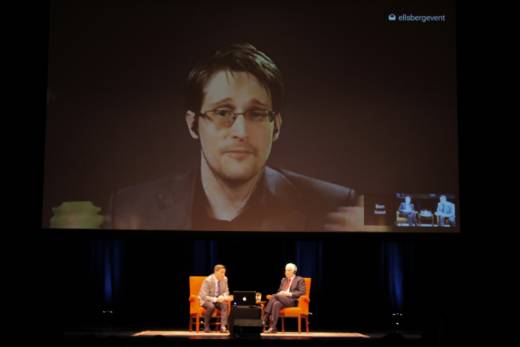Speaking to a live audience in San Francisco on Sunday, Edward Snowden, the former intelligence officer who released documents about the National Security Agency's surveillance activities in 2013, said that the sole qualification for whistleblowing is to be a witness to injustice.
"You do not have to be the president to make a difference," he said. "Whistleblowers are elected by circumstance. ... Do what you can if you see injustice. Stand up and say something. It's not enough to believe in something. If you want to see a better world, you must do something to achieve it."
Snowden spoke through live-stream video from Russia at a City Arts & Lectures event in San Francisco. He was joined by Daniel Ellsberg, the former military analyst who leaked classified documents known as the Pentagon Papers. Efforts to discredit Ellsberg in a plan hatched by the White House figured into the impeachment proceedings of President Richard Nixon.
Snowden said he wouldn't have done what he did if not for the precedent set by Ellsberg. Snowden now lives under asylum in Russia. Ellsberg remains in the United States after facing a trial that was dismissed in 1973 on grounds of governmental misconduct.
The two spoke with KQED's Scott Shafer about whistleblowing and the state of privacy and truth under the Trump presidency.
